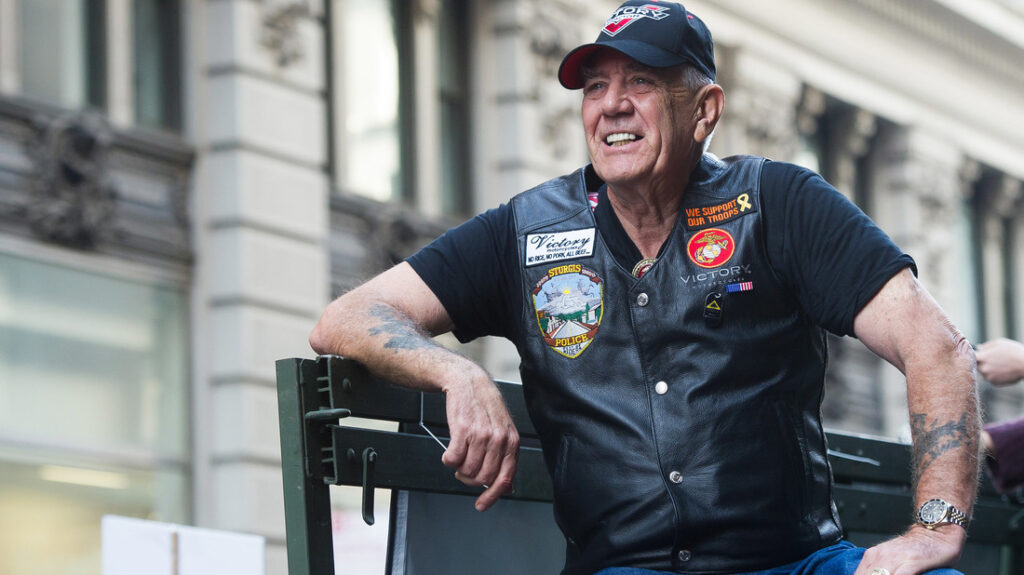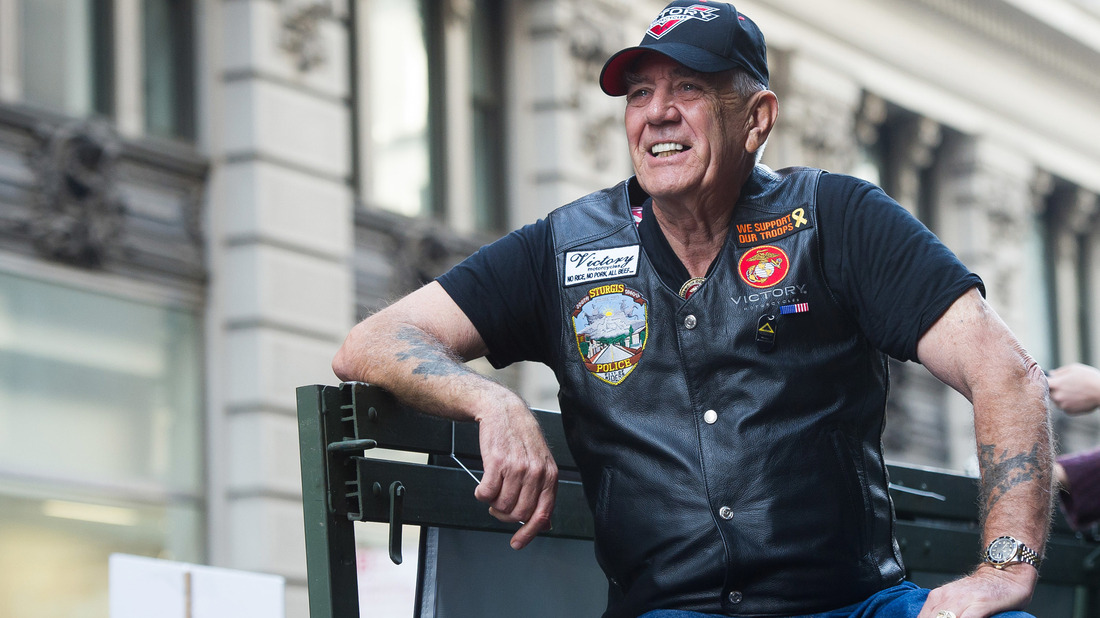
R. Lee Ermey’s Enduring Legacy: More Than Just Last Words
The name R. Lee Ermey conjures vivid images: the bellowing Gunnery Sergeant Hartman from Full Metal Jacket, a no-nonsense Marine, and a staunch advocate for the military. While his on-screen persona and real-life dedication to the armed forces are well-documented, the question of R. Lee Ermey’s last words often arises, prompting a deeper exploration of his life, career, and the impact he had on both the entertainment industry and the veteran community. This article aims to provide a comprehensive overview of Ermey’s life, focusing not only on the circumstances surrounding his death and any documented final statements, but also on the larger picture of his legacy and the values he embodied. We will delve into his military service, his acting career, his advocacy for veterans, and ultimately, the enduring message he left behind. Understanding Ermey requires more than just knowing what he might have said at the end; it demands appreciating the totality of his contributions and the indelible mark he left on American culture.
A Marine’s Journey: From Vietnam to Hollywood
Ronald Lee Ermey was born on March 24, 1944, in Emporia, Kansas. His early life was marked by challenges, but at the age of 17, he enlisted in the United States Marine Corps. This decision proved pivotal, shaping his character and setting the stage for his future success. Ermey served for 11 years, including 14 months in Vietnam. He also spent time as a drill instructor, an experience that would later inform his most iconic role. A knee injury ultimately led to his medical discharge in 1972, but his connection to the Marines remained a constant throughout his life.
After his military service, Ermey’s path took an unexpected turn toward acting. He initially served as a technical advisor on Francis Ford Coppola’s Apocalypse Now. His extensive knowledge of military procedures and his authentic demeanor caught the eye of director Stanley Kubrick, who cast him as Gunnery Sergeant Hartman in Full Metal Jacket. This role catapulted Ermey to fame, earning him a Golden Globe nomination and solidifying his image as the quintessential Marine. What many may not realize is that much of Ermey’s dialogue in Full Metal Jacket was unscripted, born of his own experiences as a drill instructor. This authenticity resonated deeply with audiences and critics alike.
The Face of Authority: Ermey’s Acting Career
Following the success of Full Metal Jacket, R. Lee Ermey enjoyed a prolific acting career. He became known for playing authority figures, particularly military personnel, in a variety of films and television shows. His filmography includes roles in Mississippi Burning, Seven, Dead Man Walking, Prefontaine, and Toy Story, where he voiced the character of Sergeant. He also hosted several television programs, including Mail Call and GunnyTime, which showcased his knowledge of military history and weaponry. Ermey’s ability to portray both the stern discipline and underlying humanity of military figures made him a sought-after actor. He brought a level of realism to his roles that few others could match, drawing on his own experiences and genuine respect for the armed forces.
More Than an Actor: A Champion for Veterans
Beyond his acting career, R. Lee Ermey was a passionate advocate for veterans. He dedicated much of his time and energy to supporting organizations that provided assistance to veterans and their families. He frequently visited military bases, participated in fundraising events, and spoke out on issues affecting the veteran community. Ermey understood the challenges faced by those who served in the military, and he used his platform to raise awareness and advocate for their needs. His commitment to veterans was deeply personal, stemming from his own experiences and his unwavering respect for their service and sacrifice. He wasn’t just playing a Marine on screen; he was a Marine at heart, always looking out for his fellow veterans.
Ermey’s advocacy took many forms. He worked with various charities, raising money for scholarships, housing assistance, and medical care for veterans. He also used his television shows to highlight the stories of veterans and to educate the public about the challenges they faced. His efforts extended to political activism as well, as he often spoke out on issues related to military funding and veteran benefits. R. Lee Ermey was a tireless champion for those who served, and his contributions to the veteran community were immeasurable.
The Question of Last Words: Context and Considerations
Given R. Lee Ermey’s public persona and his strong connection to the military, it’s understandable that people are curious about his last words. However, it’s important to approach this topic with sensitivity and respect. Ermey passed away on April 15, 2018, at the age of 74, due to complications from pneumonia. While there were no widely publicized or officially recorded “last words,” it’s crucial to remember that the final moments of a person’s life are deeply personal and private. Focusing solely on a potential final statement risks overlooking the larger context of his life and legacy. What truly matters is the impact he had on others and the values he embodied throughout his life.
It’s also worth considering the nature of Ermey’s illness. Pneumonia can be a debilitating condition, particularly for older adults. In his final days, Ermey likely faced significant physical challenges, which may have limited his ability to communicate. Therefore, the absence of a definitive “last words” statement should not diminish the significance of his life or his contributions. Instead, we should focus on the enduring message he left behind through his actions, his words, and his unwavering commitment to the Marine Corps and the veteran community.
Reflecting on a Life of Service and Impact
While the specific details of R. Lee Ermey’s final moments may remain private, his legacy is anything but. He lived a life of service, both in the military and in his advocacy for veterans. He brought authenticity and dedication to his acting roles, creating memorable characters that resonated with audiences around the world. He was a staunch patriot, a devoted Marine, and a tireless champion for those who served. His impact on American culture is undeniable, and his memory will continue to inspire generations to come. In considering R. Lee Ermey’s last words, it’s more important to focus on the enduring message he conveyed throughout his life. His actions spoke louder than any final statement could have, leaving a legacy of service, dedication, and unwavering commitment to the values he held dear.
The Enduring Lessons of Gunnery Sergeant Hartman
While R. Lee Ermey’s life encompassed much more than his role in Full Metal Jacket, the character of Gunnery Sergeant Hartman undoubtedly left an indelible mark on popular culture. Hartman’s brutal training methods and colorful language were shocking and often humorous, but they also served a purpose: to transform raw recruits into hardened Marines. The film explores the psychological toll of war and the dehumanizing aspects of military training, but it also highlights the importance of discipline, teamwork, and unwavering commitment. While Hartman’s methods may be extreme, they underscore the challenges faced by those who serve in the military and the sacrifices they make to protect their country.
Ermey’s portrayal of Hartman was so convincing because it was rooted in his own experiences as a drill instructor. He brought a level of authenticity to the role that no other actor could have matched. He understood the mindset of a drill instructor, the need to break down recruits and rebuild them into disciplined soldiers. While he acknowledged that Hartman was an extreme character, he also recognized the importance of the lessons he taught. Hartman’s legacy is a complex one, but it serves as a reminder of the challenges and sacrifices inherent in military service.
Remembering R. Lee Ermey: A Final Salute
R. Lee Ermey’s passing was mourned by many, including fellow actors, veterans, and fans around the world. He was remembered as a talented actor, a dedicated Marine, and a passionate advocate for veterans. His legacy extends far beyond his on-screen performances, encompassing his unwavering commitment to service, his dedication to the veteran community, and his enduring impact on American culture. While the specifics of his final moments may remain private, his life serves as an inspiration to us all. He embodied the values of courage, honor, and commitment, and he left a lasting legacy that will continue to inspire generations to come. In lieu of focusing on specific “last words,” let us remember R. Lee Ermey for the totality of his contributions and the enduring message he left behind: a message of service, dedication, and unwavering commitment to the values he held dear.
Frequently Asked Questions About R. Lee Ermey
Here are some frequently asked questions about the life and legacy of R. Lee Ermey:
-
What branch of the military did R. Lee Ermey serve in?
R. Lee Ermey served in the United States Marine Corps for 11 years.
-
What was R. Lee Ermey’s most famous role?
R. Lee Ermey is best known for his role as Gunnery Sergeant Hartman in Stanley Kubrick’s Full Metal Jacket.
-
Did R. Lee Ermey have any prior military experience before becoming an actor?
Yes, R. Lee Ermey served in the Marine Corps for 11 years, including 14 months in Vietnam, and was a former drill instructor. This experience heavily influenced his acting career, particularly his role in Full Metal Jacket.
-
What type of characters did R. Lee Ermey typically play?
R. Lee Ermey was often cast as authority figures, particularly military personnel, due to his authentic demeanor and prior military experience.
-
What were some of R. Lee Ermey’s other notable roles besides Full Metal Jacket?
Besides Full Metal Jacket, R. Lee Ermey appeared in films such as Mississippi Burning, Seven, Dead Man Walking, and provided the voice for Sergeant in the Toy Story franchise. He also hosted the television shows Mail Call and GunnyTime.
-
Was R. Lee Ermey involved in any work supporting military veterans?
Yes, R. Lee Ermey was a strong advocate for veterans and dedicated his time and resources to supporting various veteran organizations.
-
What caused R. Lee Ermey’s death?
R. Lee Ermey passed away on April 15, 2018, due to complications from pneumonia.
-
Did R. Lee Ermey write his own lines in Full Metal Jacket?
Much of R. Lee Ermey’s dialogue in Full Metal Jacket was unscripted and based on his own experiences as a drill instructor.
-
How did R. Lee Ermey’s military experience influence his acting career?
R. Lee Ermey’s military experience provided him with a unique perspective and authenticity that made him a believable and compelling actor, particularly in military roles.
-
What is R. Lee Ermey’s lasting legacy?
R. Lee Ermey’s lasting legacy includes his memorable acting performances, his unwavering support for the military and veteran community, and his embodiment of values such as courage, honor, and commitment.
The Unfading Memory of a True Marine
In conclusion, while the specific details of R. Lee Ermey’s passing may remain private, his impact on the world is undeniable. He was more than just an actor; he was a Marine, a veteran, and a passionate advocate for those who served. His legacy extends far beyond his on-screen performances, encompassing his unwavering commitment to service and his dedication to the veteran community. Let us remember R. Lee Ermey for the totality of his contributions and the enduring message he left behind: a message of service, dedication, and unwavering commitment to the values he held dear. Share your favorite R. Lee Ermey moments and reflections in the comments below and continue to honor his memory by supporting veteran organizations in your community.

